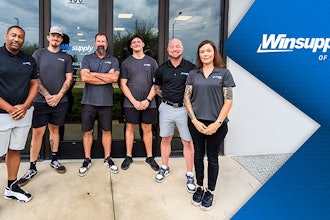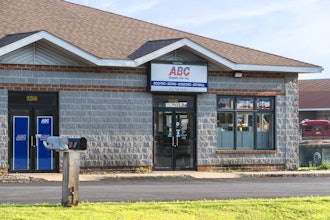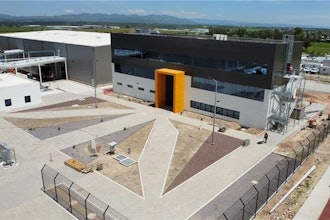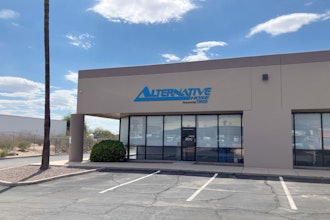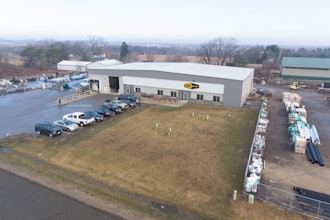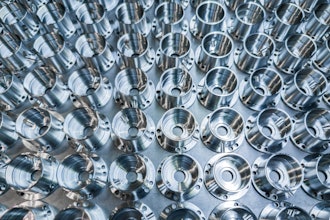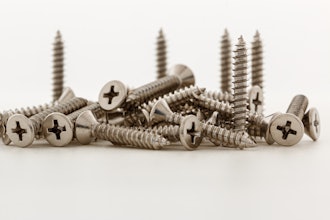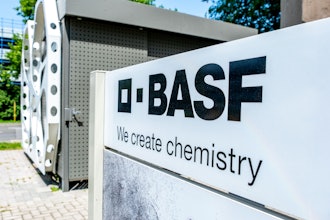A 40-minute drive east of Des Moines, IA sits the small town of Newton – which is quintessential Iowa. A prideful, hard-working, rural city surrounded by miles and miles of farmland. It’s almost the last place one would expect to find the headquarters of a hi-tech manufacturing/distribution company.
It’s fitting that such a company is one of the more unique firms in the industrial supply sector. Recently expanding to three other states after more than six decades located solely in central Iowa, Cline Tool is taking its hybrid distributor-supplier role to more customers than ever before on the strength of its technical expertise that rivals larger companies in the market.
Unique Role
Cline Tool was founded in 1948 in downtown Newton (pop. 15,000) in a rented office space that included little more than a desk, portable typewriter and file cabinet. It eventually moved into its current industrial park location in 1989. The company had a headcount of 47 when it was bought in 2010 by its current owners — which include husband-and-wife company executives Jim and Sherri Long and Jim’s brother Ron Long — and now has more than 100 employees as of April 2018. In 2015 alone, Cline Tool added locations in Rockford, IL; Fletcher, NC; and Houston, TX.
Through all that time, and recent rapid growth, Cline Tool has had a dual-identity as a distributor of cutting tools and industrial supplies and a manufacturer of custom cutting tools to customers of all sizes. The company serves a range of industries, including agriculture, automotive, construction equipment, medical, appliances and hydraulic valve controls.
Nearly every industrial distributor today offers at least a couple value-added services to complement its role as a product source. Cline Tool takes it to a whole other level, to the point that calling the company a distributor would be a disservice, as its distribution division is just one facet of its operations. Of the 65,000-square-foot Newton headquarters, approximately 50,000 is essentially a high-tech factory that produces state-of-the-art, custom tooling solutions. It’s literally a manufacturing facility within a distributorship. This means when a customer is having issues with machinery downtime or having quality programs, Cline Tool has likely seen similar issues in the past and can suggest a solution. It can then either produce or distribute the part(s) or maintenance needed to solve the problem.
“Many times when our customers come in, we’re essentially running the same kind of manufacturing facility that we service, so we’re able to connect with them,” says Jim Long, Cline Tool’s president since 2004 and CEO since 2010. “A lot of times they’ll come here and go, ‘oh, you guys are doing the same kind of stuff we’re doing. No wonder you understand our business so well.’”
Many distributors offer custom fabrication as a service, but it’s a major pillar of Cline Tool — one of the largest custom cutting tool manufacturers in the U.S. This gives the company enhanced insight into the issues customers are facing in their own facilities, and makes Cline Tool especially relatable compared to competitors that are more strictly focused on distribution or manufacturing.
Services
Cline Tool’s distribution capabilities are well-known to its customer base and beyond. The company is a full-line distributor of leading suppliers of metal cutting tools, tool holding, abrasives, MRO products, metal working fluids, power & hand tools and gages & measurement.
On the manufacturing side, Cline Tool’s fabrication experts average 19 years of company experience and are constantly designing and building solutions to meet customers’ needs. That immense experience and low rate of turnover are a difference-maker for the company when it comes to solving the unique issues customers bring them every day.
“There aren’t many things we haven’t seen in the custom toolmaking or manufacturing world,” says Cline Tool CFO Jason Benson. “We’ve grown up with technology, we’ve adapted with it and we keep trying to raise the bar for ourselves along the way.”
While distribution and custom cutting tool manufacturing may be the backbone of Cline Tool’s services, they’re hardly the only two. The company’s total packages of services comprise what it calls its “360-degree Total Solution,” containing expertise in all facets of manufacturing. The company’s other services include:
- Integrated supply/vending programs — Customized, scalable inventory management systems help customers achieve significant cost savings and lean manufacturing objectives
- Tool reconditioning and regrinding — Cline Tool’s craftsmen restore customer’s tools to original specifications and reduce their tooling budget with repair costs based on actual damage. Customers can email a photo of their damaged tool for an estimate.
- Comprehensive engineering services — From designing a tool to fit a customer’s specific application, to suggesting a manufacturing process or tooling improvement, Cline Tool’s engineers find solutions to the most demanding requirements
- Complete project management — Cline Tool provides engineering services and tooling for customers looking to reprocess an existing part, or when a customer is tooling new equipment. Cline Tool takes ownership of the tooling requirements, guaranteeing cycle times and quality and making sure tooling is optimized.
It’s those non-distribution services that the company wants current and potential customers to know more about.
“I think a lot of people think of us as an industrial distributor-only, and until they get to know us, they don’t see our breadth of products and custom tool manufacturing and integration capabilities,” Long says. “That’s probably the biggest disconnect.”
Boosting its headcount has certainly helped Cline Tool avoid spreading itself too thin, but so has the overlap between those various services. Their interconnectivity is exemplified when a customer is having an issue with a machine part. Cline Tool will send an engineering team to conduct a study of the customer’s full machining process and then make recommendations on how they should reprocess that part, enhance work holding or change the programming. By doing so, that customer can achieve substantial savings — sometimes hundreds of thousands of dollars. In turn, that can lead to a further discussion about Cline Tool handling that customer’s entire tooling needs and if it makes sense to engage any other of the company’s services.
According to Long, it’s that partnership-based, engineering-focused business model that differentiates Cline Tool from the competition.
“I really think it’s the ability to engage at the engineering level,” Long says. “It’s not so much a transactional model. Our engineering is a way to open the door and get further involved with the customer.”
“We mix-and-match our services with every unique solution, and I think that’s a great benefit for our customers,” Benson adds. “They see it, they can tangibly see the difference between us and our competition.”
While many Cline Tool employees’ expertise bridge several services, the company designates groups for certain ones. There is a dedicated team for internal operations, another for industrial distribution, as well as dedicated vending teams at the Newton and Rockford locations.
Recent Growth
Through 2010, most of Cline Tool’s customer base was agricultural-based. Following the ownership change that year, the company sought to diversify. It did that in a big way in 2015, first adding a second location in Fletcher, NC to take advantage of the automotive and aerospace market there. Shortly after, Cline Tool opened its Houston location to add oil & gas customers and then expanded to many more general manufacturing customers by opening its Rockford, IL location in September of that year.
It was a lot of sudden growth to manage for a company that had stayed put in Iowa for 67 years, so putting the right people in the right places was critical, as was the support of its suppliers.
“I’d be lying to you if I said it was easy,” Long says. “I think the key for us was hiring the right manager in each location and giving them the autonomy and authority to run those businesses. And our suppliers have been tremendously supportive. All of our suppliers supported our expansion and have been critical to our success. Our two largest — Sandvik Coromant and Kennametal — have really embraced our expansion and both are great partners. They really see our business model as one that drives new opportunities.”
That growth also meant having a lot of technically-oriented roles to fill at the new locations. Finding new talent is one of the biggest challenges in the industrial supply sector overall — in ID’s 2018 Survey of Distributor Operations, more than 44 percent of respondents said they typically aren’t able to find suitable candidates. But it’s a different story at Cline Tool, which has had a steady pipeline of interested applicants for years.
“As the word got out that we were looking to expand, it’s amazing how we were getting people coming to us saying, ‘we’d like to come work for you.’ A lot of folks were hired through word-of-mouth. We have a strong batch of people who have contacted me saying, ‘if you ever consider expanding here…’ It’s nice that way.”
Long couldn’t divulge the specifics of what’s ahead for Cline Tool’s future growth, but said the company definitely has aggressive growth plans.
Online
Anyone that visits www.clinetool.com will find a robust website packed with company and product information, full contact information for managers and engineers, overviews of the aforementioned services and company videos. What one won’t find is e-commerce, but there’s good reasoning behind that. Long and Woods acknowledge the major role e-commerce now plays for many industrial distributors and suppliers, and the importance of an e-commerce strategy. But the company has not yet found an e-commerce platform that can enhance the engineering-based business model to its satisfaction. Long indicated Cline Tool is always looking to enhance its offering and value and that e-commerce will play a role sometime in the future. It just has to find the right match.
“We really want to go in and meet with the customer and understand their business,” Long says. “We tell them there’s a lot of people that would be happy to just buy and sell tools, and a lot of people that can take orders and take your money. What we try to do is provide additional value-added services like custom tool manufacturing, and our engineering service customers value this much more than a company that just wants to fulfill and ship an order and not really service it.”
The company is active on LinkedIn, Twitter and has especially made extensive use of Instagram — typically seen as the least usable popular social media channel in the industrial space. Cline Tool has more than 1,700 Instagram followers between its Newton and Houston profiles, with machinists comprising many of them. Industrial distribution and marketing manager Lashelle Woods handles nearly all of the company’s social media posting, frequently posting photos and videos of Cline Tool’s machining processes and resulting products.
“Our business is built on making personal contacts, and all the social media platforms are just another way for us to engage with our customers and our prospects,” Woods says. “We have a lot of people following us on Instagram that we're not doing business with right now, but hopefully we will in the future.”
Pleasantly Surprising
Being located in rural Iowa, Long says new visiting customers’ expectations of the company’s capabilities and operations are often tailored down.
“When customers come here, they’re typical reaction is, ‘oh, this isn’t what I expected,’” Long says. “They had been to a tool shop at some point that was dimly-lit, poorly organized and didn’t use much technology. They come here and we’re using some of the latest technology available in manufacturing — from equipment, to software, to quality inspection, to design, to everything.”
After all, Iowa’s “Fields of Opportunity” state slogan doesn’t exactly scream hi-tech. But those pre-conceived notions can actually be an advantage.
“It’s usually good, because when they get here it’s almost enlightening,” Long says. “They’re surprised we have all this in the middle of the cornfields.”










